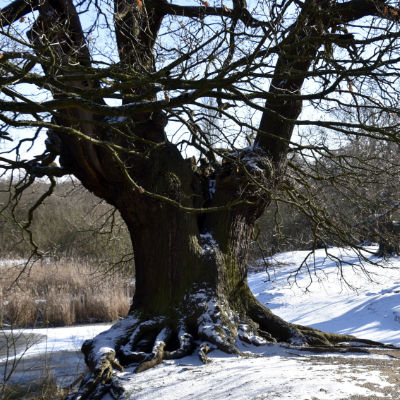The Imagined Forest
13 November 2019
Walthamstow Trades Hall
Sold out
The forest occupies a unique space in our human psyche, the uneasy relationship we have with trees has created the setting and tension that is found at the roots of so much of our folklore and fairy tales.
As the forest slides from the lurid colours of autumn into the chill of Winter, we challenge musicians and writers to explore new mythologies amid the falling leaves of Epping Forest.
A panel of writers whose work touches on Epping Forest discuss the landscape in the context of myth, folklore and how woodland shapes our human identity, in addition to music from Alison Cotton and poetry from Faber New Poet Will Burns.
Will Ashon’s Strange Labyrinth uncovered the radical history of the Epping Forest area. He is also the author of "Chamber Music" an analysis of the Wu Tang Clan's first album.
Amy Cutler is a cultural geographer whose work explores the furthest reaches of how nature impacts our imagination. Zakiya Mckenzie is one of Forestry England's Writers in Residence.
The writers will be in discussion with Luke Turner.
Musician Alison Cotton will perform music from her new solo album “All Is Quiet In The Ancient Theatre”. Will Burns will read new work inspired by Epping Forest in a special commission for Waltham Forest London Borough of Culture 2019.
The Imagined Forest is part of The People's Forest season - a series of events exploring our relationship with Epping Forest, interrogating the deep bond we have with forests and woodland, and how this relationship is culturally determined.
Image credit: Robin Baish
Event categories:
How to get there
Venue: Walthamstow Trades Hall, 61-63 Tower Hamlets Rd, Walthamstow, London E17 4RQ
By bus: 34, 215, 97, 375, 275
By train: Walthamstow Central (Victoria Line, London Overground), Walthamstow Queen's Road (London Overground)
Who's Involved
Will Ashon
Will Ashon is a novelist, non-fiction writer and screenwriter, previously a music journalist and founder of the record label Big Dada Recordings. He left the music industry in 2014 to pursue his writing full time. His book Strange Labyrinth part memoir/part history and described as “an anarchic hymn to the scruffy edgeland of Epping Forest” (The Observer) was published in 2017. His new book Chamber Music: About the Wu-Tang (in 36 Pieces), focuses in on the debut album by the Wu-Tang Clan and was longlisted for the Penderyn Music Book Prize 2019.
Amy Cutler
Dr. Amy Cutler is a cultural geographer, filmmaker, and artist who has recently completed an Early Career Leverhulme Research Fellowship on the histories of the British forest and “sylvan discourse” in film, photography, philosophy, literature, and law. Her work explores the edge-lands of our environmental identities, particularly the political, scientific and natural histories of overlooked, undervalued, or maligned British landscapes/plants/insects. She has worked as a curator and artist with leading environmental and cultural institutions and she is currently lecturing on animalities in the Visual Cultures department at Goldsmiths, University of London. www.amycutler.net
Zakiya McKenzie
Zakiya Mckenzie began her working life as a scriptwriter and journalist and is currently Forestry England's Writer in the Residence, currently writing her PHD as she continues a love affair with writing, heritage and nature. Zakiya will be joining us discussing how we traverse the forest both physically and in our imaginations.
Alison Cotton
Alison Cotton is a classically trained viola player based in London, working with improvisation and composition. As well as her recent solo work, she is one half of the Walthamstow-based songwriting partnership The Left Outsides. Cotton’s debut solo album All Is Quiet at the Ancient Theatre was released in 2018 on cassette on Bloxham Tapes and, due to high demand, was followed by a vinyl co-release on Cardinal Fuzz (UK) and Feeding Tube (USA). As well as the viola, she uses an array of other, often esoteric instruments (harmonium, percussion, recorder, omnichord, shruti box; piano) and voice to create lengthy, levitational haunting folk-drones.
Will Burns
Will Burns was born in Enfield and now lives in Buckinghamshire. He is one of the poets in residence for Caught by the River and 2014 he was named as a Faber New Poet, with his debut pamphlet published by Faber & Faber in October that year. Hoping to draw on a lifelong interest in the natural world, and in particular the contested ground around London and the home counties, Will’s work in Epping Forest focuses on ideas concerned with people’s access to spaces, our relationship to woods and forests, our interactions with the non-human and how the culture and history of woodlands might exert its own pressures on our understanding of the environment in a period of crisis.

